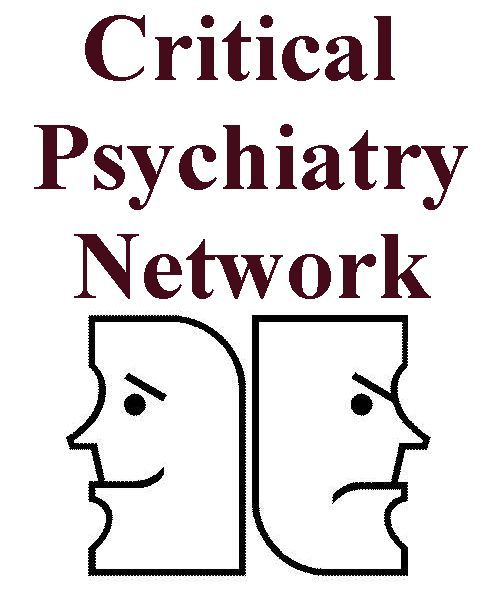

RESPONSE TO CONSULTATION ON DRAFT MENTAL HEALTH BILL
The Critical Psychiatry endorses the 12 August 2002 statement of the Critical Mental Health Forum (attached)
The draft Bill could be seen as an example of how new Labour has been too controlling in how it has tried to run the country. There are political consequences of a government that promotes social inclusion appearing to discriminate against a vulnerable group, such as the mentally ill.
Positive aspects of the Bill include:-
(i) Tribunal itself may not have medical member.
(ii) Clinical supervisor may be non-medical professional
(iii) Potential independent decision making of Tribunal from biomedical advice
Negative aspects:-
(i) Mental illness (although not defined in the 1983 Act) is a narrower term than mental disorder. The Government have rejected the use of the notion of incapacity. However, the term mental illness, despite its lack of definition, tends to imply incapacity. This safeguard is lost in the draft Bill.
(ii) The need for admission in the 1983 Act restricts application to more serious cases. People will undoubtedly be put off having contact with more coercive services.
(iii) For people regarded as being of substantial risk of causing harm to others, compulsion may be applied even if not the only way of providing treatment. The government has dropped "treatability" from its proposals, making services merely custodial rather than therapeutic.
Consultation points
Scrutinising the proper application of the Act
Although the role of scrutinising documents is important, it is essentially a bureaucratic function concerned with the structure of the application of the Act. The health care inspectorate should also be involved with the content of the application of the Act, which in the current proposals will largely be set out in principles in the Code of Practice. It has a role in ensuring a high quality of mental health care provided under the Act.
Protecting children with serious mental disorders
The legal protections, although to be welcomed, may perversely encourage use of the Mental Health Act for under 16s, which in practice should be rarely used. As it is so uncommon, why should not all treatment for under 16s be authorised by the Tribunal, which would need to develop rigorous criteria for the application of coercion?
Respecting the legal rights of patients and health care workers
Staff should be accountable. They also need to be supported in taking appropriate risks in the interests of patients. The Act should not encourage defensive practice.
Focusing on individual needs, removing exclusions
It is difficult to see how if these exclusions are removed that the Act will not on occasions be used legally to treat these conditions in themselves. Inappropriateness of compulsory treatment may be an insufficient safeguard to override potential risk. Lack of definition of mental disorder, even by exclusion, broadens the potential scope of the Act. If there are no specific safeguards to prevent "roping in your son who gets drunk on a Friday night", why should it not happen?
Sharing information to improve patient care
Principles of patient confidentiality are likely to be compromised by a general duty to co-operate in the supply of information in relation to risk management and assessment. Surely the duty is to have good information sharing to improve patient care.
Better care for prisoner patients
Specific legal protections for prisoners, although to be welcomed, could perversely encourage use of coercion in prison. Why should not all treatment for prisoners be authorised by the tribunal?
Patients’ correspondence
We would also like to see the evidence for the need for an extension of powers.
Mental Health Tribunals – Single Member Sittings
The broad criteria make the legal justification of the need for compulsion relatively easy to decide. What is unclear is how much the Tribunal is expected to take on responsibility for health outcomes. How will it decide eg. between different clinical opinions of clinical supervisor and advocate? Principles will be laid down in the Code of Practice, but the tendency will be for the Tribunal to adopt the more restrictive option, as legal criteria are defined so broadly.